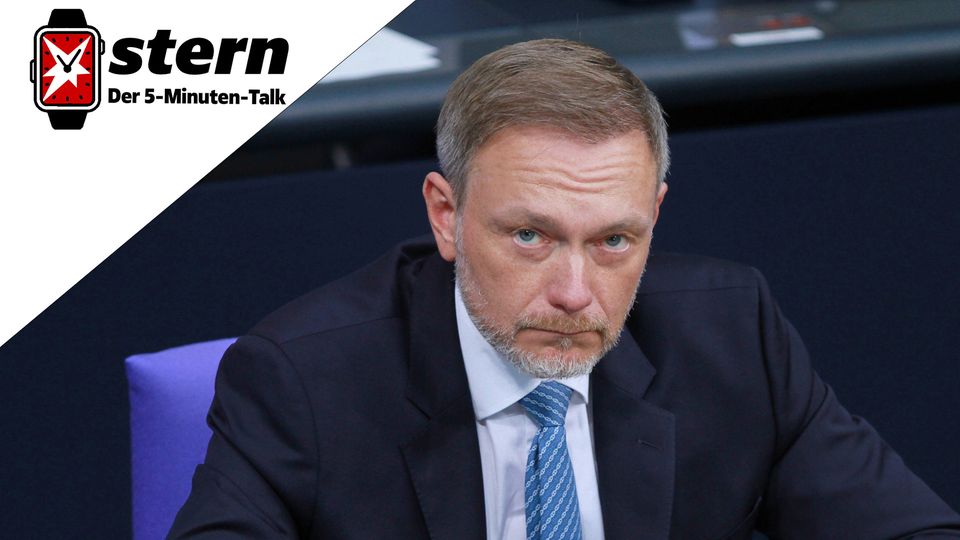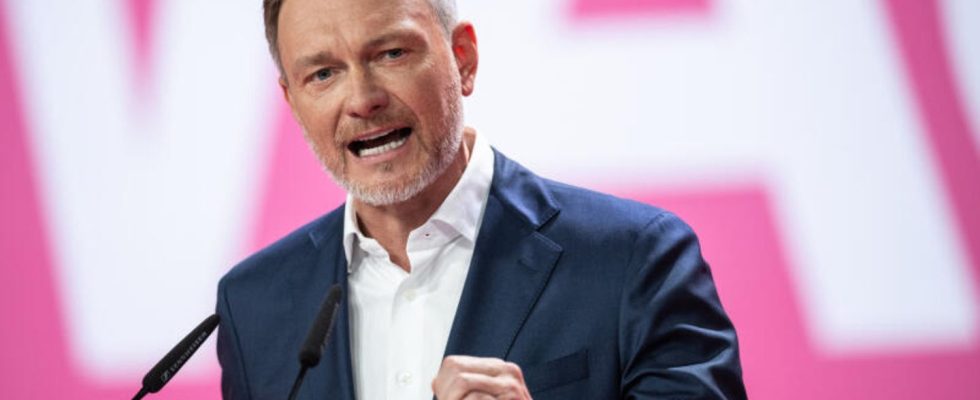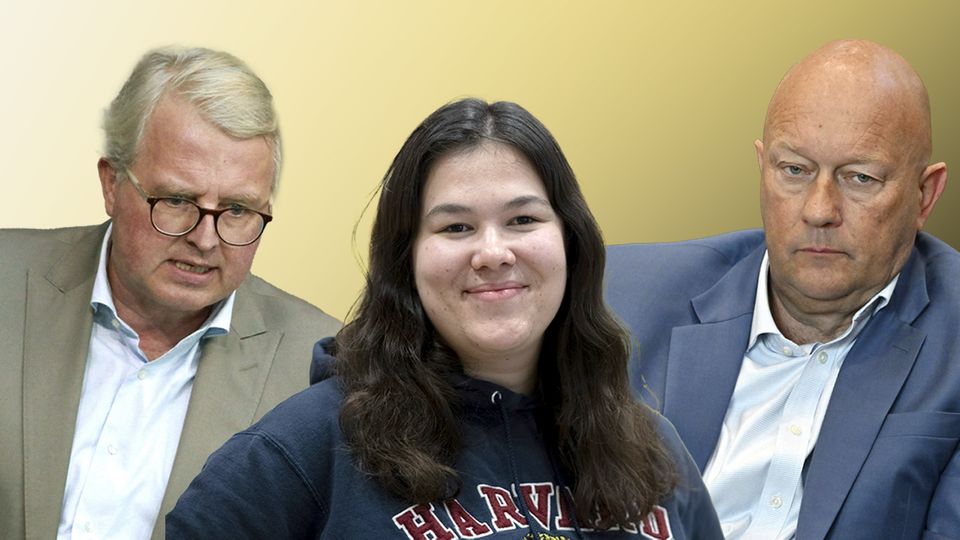Opinion
FDP party conference
Completely detached: Christian Lindner’s political limbo
Christian Lindner at the FDP federal party conference in Berlin: What does he plan to do?
© Hannes P. Albert / DPA
At the Liberal party conference, FDP leader Christian Lindner spoke in detail and exclusively about Germany’s economic future. He leaves the future of his party and the traffic light coalition open. Probably because he doesn’t have an answer himself.
Shortly before the end of his speech at the party conference Christian Lindner the crucial question. Well finally! This question hasn’t been missing from any talk show for weeks, it’s wafting through newspaper editorials, it’s continually cropping up in political discussions. Actually, you can’t hear them anymore. And only Lindner can answer it.
After almost an hour it was a long way. The party leader himself raised the question. Naturally, people’s ears pricked up again after a speech in which the chairman had already packed a lot, but rhetorically fell far short of previous appearances. But perhaps one decisive answer will now be found, which would be desirable because the continued existence of the traffic light coalition, and therefore the overall political situation in Germany, depends on it.
The question is: What happens next for the FDP?
But alas, Christian Lindner didn’t say anything about it. Not in the almost 60 minutes of his speech beforehand and certainly not after he had asked himself. Instead, the FDP chairman spoke for a few more minutes about his party, its ideas, its values and its identity, just as if the FDP was floating around, at least in the political sphere, completely detached. The traffic light coalition, a stellar constellation, so to speak, or in the words of the FDP leader: “the political circumstances as they are.”

When will the FDP replace its chairman?
05:24 minutes
A speech to mark the farewell? No.
And so afterwards you have to pick around again yourself in the few ashes that this speech left behind, which was not a rhetorical fireworks display. Was that a speech to mark the departure from the government? Not at all. Lindner did not call himself a friend or an enemy (apart from Putin, the AfD and EU Commission President Ursula von der Leyen). He only distributed a few smaller peaks – and in a very balanced manner in all directions.
The traffic lights actually played no role. Lindner didn’t mention the name Olaf Scholz, only made fun of people who complained about the economy. This was aimed at the Chancellor as much as an ironic remark about the constitutional expertise of the Social Democrats, with which Lindner alluded to the Karlsruhe judgment on the debt brake. But all of this came across more as teasing, as moderate party conference folklore, designed as a rhetorical Easter egg hunt for his listeners: Find the allusion here and don’t miss the joke there.
A speech committing to the coalition? Neither.
Was that a speech that expressed commitment to the government alliance? Not that either. One could say benevolently that the FDP leader has stuck to himself and what he believes defines his party: the economics. He described in detail the economic turnaround that his liberals are demanding. Other topics were practically non-existent.
Lindner recited the catalog of demands drawn up by the Liberals. He focused on performance and the desire to work and explained his positions on the debt brake, pensions at 67 and citizens’ benefit. He reaffirmed the conditions for basic child welfare. And he committed himself to climate protection, but with the means of technology and without bans or renunciations. He invited others to make suggestions and was willing to talk. No harshness against anyone, but no enthusiasm either.
If you draw a line under this appearance, you can only come to the conclusion that Christian Lindner doesn’t want to answer the question of what happens next with the FDP. One can assume that this is a clever strategy: the state of limbo is intentional, it ensures the FDP a lot of attention and keeps all options open for Lindner.
But it could also be an attempt to use a lot of mumbo-jumbo to hide the real reason why Lindner doesn’t answer the all-important question: his helplessness. Then Lindner wouldn’t say what’s next for the FDP because he doesn’t want to, but because he doesn’t know. And a certain emptiness at the end of this speech suggests that perplexity is actually the most likely option.



